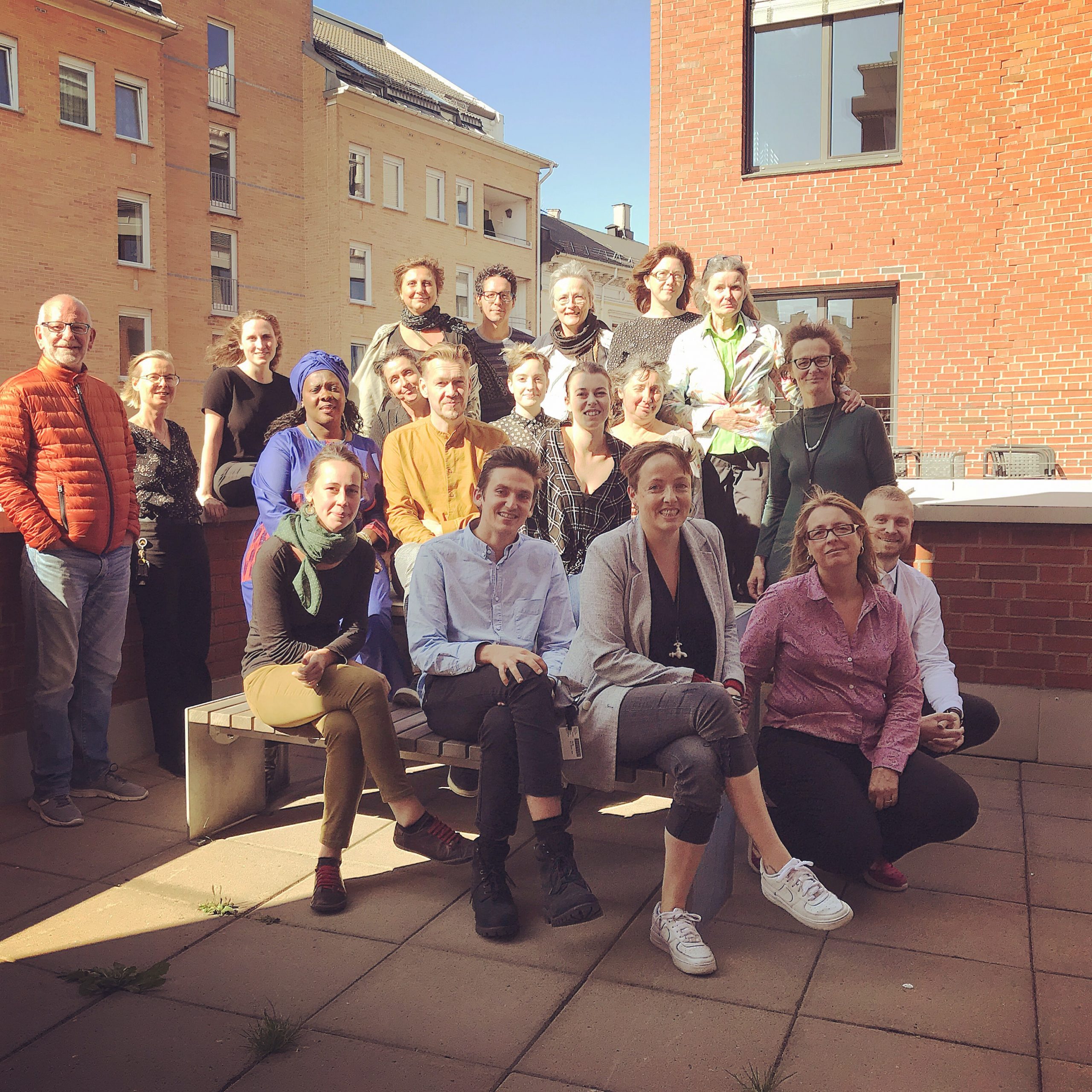On the sunny autumn weekend of September 13th and 14th, we gathered at Oslo Metropolitan University for the first official FOOD2GATHER meeting. Our Norwegian partners welcomed the other project members who gathered flew in Oslo from France, Germany, Belgium, The Netherlands and Italy: researchers with different backgrounds, languages, scholarly disciplines and field experiences. People who, for almost 30 months, will be sharing a common path.
This was a welcome opportunity for all researchers to meet each other, make a progress report on research, discuss challenges, and ideas thus far. The overall aim of the meeting was to establish a common ground for all participating research teams, as well as to arrange the next steps of the wider project.
Our project leaders carefully organized and deftly structured our two meeting days into sections that related to the various work packages and tasks. This allowed us to clarify and discuss different aspects of the project, with the goal of reaching a consensus, or conversely, pointing out gaps that we had to resolve. The presentations and sessions laid the groundwork for discussions that helped elucidate concepts, terms, strategies and aims. Those debates benefited greatly from the variety of perspectives and experiences, as well as the personalities of our research group.
The meeting started with a focus on the conceptual frame, which included a fruitful dialogue about the different approaches to some of our shared concepts: “foodscapes”, “hospitality”, “public spaces”, “agency”, “migration”, among others. After analyzing the variety of our understandings of these topics and the connections between them, the issues that emerged from these reflections were: how to discuss these concepts with a shared language? What are the differences between our respective approaches? And, how to productively “negotiate” these concepts together?
Another important part of the meeting was a deliberation of our case studies and the field research. It was a welcome opportunity to share our experiences, data on the contexts of our research, and our positions as researchers regarding this all.
This occasion also gave us the chance to meet some of the associate partners involved in the project: Refugees Welcome Oslo, and the Unit for Diversity and Integration (EMI) from the Oslo Municipality. The importance of the project and its contribution was especially evident when they presented on their organizations and their work, and the expectations they hold for this collaboration. This allowed us to reaffirm how important it is to build the research collaboratively as well as the opportunities Food2Gather offers us to enrich one another by building deep and continuous networks and by conducting meaningful dialogue with the partners of the civil society. Such an approach is essential to our horizontal vision of cooperation. In line with this, the presence of the Norwegian associate partners reminded us of the necessity to stay adherent to the rich and diverse contexts of our research, and that the core of our project is rooted in ethnographic research. Their talks illustrated why projects like Food2Gather are necessary and gave us an idea what kind of impact Food2Gather may have.
In addition to the group discussions of our research and fieldwork, the meeting provided us with the inspiration that we needed to imagine our pilot projects. The questions that emerged were diverse: what are the contributions and relations of Food2Gather to the associate partners? How might the research affect their activities? How can we spread our work within academic, public, institutional and political spaces?
The second day began with the presentation of further work packages. The discussion focused on the criteria by which to collect and display general data regarding food, migration policies, assistance programs and media discourses, in order to produce comparable material based on both the case studies and the national contexts. Thereby, we aim to also build a contextual overview at national and European level.
Together we deliberated the ethical issues regarding the differences between our vision of the research and the laws and regulations concerning personal data protection: how to ensure an ethical research at a local level for our fieldwork, while also navigating the complex legal backgrounds of our research settings?
Following was a discussion on the experimental methodologies to be used by all groups, including for instance the hybrid forum. Examining its purpose and efficacy allowed us to address the power of this emerging and unique methodological approach.
The meeting closed with a brainstorm on the possibilities of publication formats . We examined in depth the ways in which we could disseminate our results, both within and outside of academia, making the research as accessible as possible to the wider public through the use of social media. We also explored the various audio/visual forms that could express disseminate our research in innovative and interdisciplinary manners, whether through podcasting, filmmaking or visual arts.
The discussions which filled the weekend instilled in each of us the importance of seeing how through sharing and dialogue, the diverse backgrounds and experiences we bring to the table can become part of a whole, constituting the process of a community in the making.
Happily – and importantly, given the topic of our research – these formal discussions were interrupted by food, that provided us with the opportunity to eat together, feeding ourselves and the project with enriching and fruitful knowledge-sharing. Markedly, the first day of the meeting ended with a very nice dinner in a restaurant specialized on Norwegian food. This occasion allowed us to get to know each other in an informal setting, as well as to appreciate some of the local Norwegian food culture.
The different teams left Oslo after a productive meeting, visibly inspired and grateful for the generous hospitality of the OsloMet group. The gathering was a fantastic appetizer to the great work ahead of us and the project that we can now consider officially launched!
Edda Starck, German team
Melanie Vivier, Belgian team (LASC, FaSS-IRSS, ULiège
Nick Poulson, The Nethelands team
Sarah Marchiset, French team (hUBM, UMR CNRS Passages)
Helene Teigen, Norwegian team
Giovanna Palutan, Italian team
